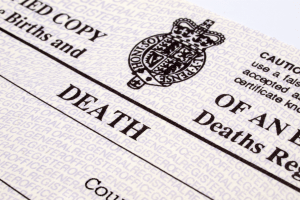There has been recent debate regarding who can verify life extinct in cases of expected death, polarised between some coroners who are keen to have confirmation from a suitably trained (and registered) professional on the one hand; and GP representatives on the other who quite naturally wish to avoid taking on this role, as this is time-consuming, especially in the current pandemic.
One of the questions around the new regulations – brought in during the pandemic – is whether a qualified person must be present ‘in person’ for deaths in the home, or can diagnose life extinct remotely by video-link or telephone, or via and with assistance of an untrained lay person. It may be an unpopular opinion, but I think a GP, and preferably one who knows the patient, should be making this diagnosis.
This is partly shaped by my own experience. Some years ago, as a GP trainee in fact, I was phoned one awful stormy winter night by a farmer’s wife, who reported his death when they had found him slumped unresponsive and not breathing or beating at the living room table.
I followed her directions to a meeting with her son at a junction on a rural road, from where I followed him in the farm Land Rover through a very dark night with thick wind and rain; then along a very wet and muddy path to the farmhouse. This was no emergency response (she would have used 999 for that!), so we carefully wiped our feet, etc, and the farmer’s wife matter-of-factly introduced themselves and gave an account of the evening’s events so far.
To the surprise of myself and the wife, he started to breathe again
I found the farmer sat in upright chair at the table, dressed as farmers do in every layer you can think of, and completely unresponsive, deathly pale, with no pulse. However, remembering that to follow correct procedure I would need to put my stethoscope on his bare chest, but conscious of the time and difficulty that would accompany taking off the jacket, waistcoat, jumper, shirt, woolly layer and vest, I took a slight short-cut in grabbing a handful of all said layers just above his loosened belt, and lifting them all at once.
To the surprise of myself and the wife, he started to breathe again, irregularly at first, and listening to his chest revealed heart sounds.
The son, who had deferently left the room while we ‘confirmed death’ was called back again and sent immediately out to meet the ambulance which we summoned at the same time. Unfortunately, being unprepared when he returned with the ambulance crew, he received quite a shock when they did return, to find me arguing with his father about whether his current condition was enough to mandate a hospital admission. I suspect his reaction supported my side of the discussion, and with help of the ambulance crew the farmer was persuaded to accept admission to the town’s cottage hospital, as a compromise – there was no way he was willing to go to the district general hospital in the Big Town.
Tests, as could be done in the cottage hospital next morning, confirmed that he had perfect physical condition (for an elderly farmer), memory (except for a short period of the previous evening), and ECG, and as he appeared to have suffered no ill effects, I was persuaded to allow him to go back home. He would have it no other way. So far as I know he lived for at least several years more, although having moved overseas, I lost track of him.
In short, this was a routine call to ‘confirm death’, to which a non-emergency response was made, given the impossibility of getting there within 10 minutes and this was before bystander CPR was routinely available, and in a situation where decease was, to the family, an acceptable fact of life. However, check by a ‘competent person’ revealed he was actually not ready for the undertaker to visit.
Only in some hospital specialties do medics find themselves at a significant number of acute successful resuscitations. I have attended a few, but a greater number which were not. Successful CPR outside hospital is still rare, but to achieve it without actually doing any of it seems impossible. I can only assume that I had somehow opened the airway and jolted the heart by my pull on his clothing.
Anyway, I think it has forestalled any tendency on my part to take short-cuts in death verification.
Dr David Church is a locum GP in Aberystwyth, and South Gwynedd
Pulse October survey
Take our July 2025 survey to potentially win £1.000 worth of tokens













